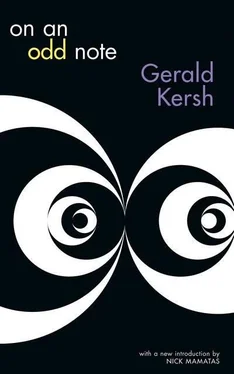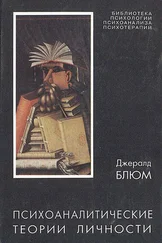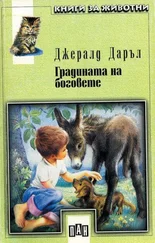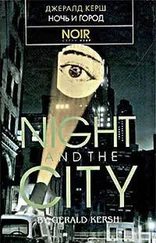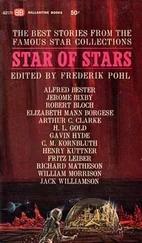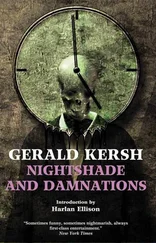I never saw a stonier pair of bright black eyes. He was short but beautifully proportioned, a sort of vest-pocket Hercules, unquestionably a dangerous man in a rough-house for all his fastidiousness of dress and manner, and his gentleness of voice. For no definable reason I also detested him; with Gino it was hate at first sight. Stavro had a disconcerting way of looking at you—he gazed right into your eyes with the hungry, immovable, wide-eyed stare of a pervert or a watching cat. He seemed to be having trouble with a match and a cigarette, so I offered him a light. He thanked me graciously and said, “This is nothing, this arm. I am almost ambidexterous. I can write with my left hand, even. Look—” He took out a fat green fountain pen, unscrewed the cap with the help of his fine white teeth, and scribbled Stavro on the marble-topped table “—Do you like my pen?” he asked.
“It is very nice.”
“You can have it for two pounds if you like. It cost me three guineas.” He was lying, of course; he was not the man to pay good money for anything. I wondered what he did for a living and concluded that he got a risky livelihood on the fringe of the underworld, buying things on credit and selling them quickly for cash, walking off with other people’s luggage . . . always moving quickly and quietly, elusive, a Disappearing Man in a conjuring trick, here today, gone tomorrow; best left alone. Later Gino said, “I am an old man and you are a young man. Allow me to warn you; keep away from that dark one. He is no good, he is a pomp.” He meant “pimp” and was not far wrong at that.
Stavro went on talking, purring out self-glorification: “My left hand is as good as my right. I will show you something. There are not many men you know can do this—” He whisked an elegant pearl-and-silver fruit knife out of a waistcoat pocket, opened it with two fingers and his teeth, turned his head and pointed to a small wooden sign two yards away, which advertised somebody’s Highland Whisky in elegant gold lettering. “Which do you prefer? The dot over the i in Highland or in Whisky? ” I did not know what he meant. He explained, “I will dot you the i in Highland.” Then, with a casual snap of his powerful fingers he flicked the little knife away. The point buried itself in the center of the dot he had specified. “Have I earned a drink?” he asked, retrieving his knife and putting it away. I said that he had, indeed, and I bought him one. In the end I bought his fountain pen.
Stavro frequented Gino’s Long Bar for several weeks. His arm, free from the sling, was permanently distorted, fixed in its peculiar, weary, reptilian droop. He told me that all the tendons and muscles had been cut to pieces so that he would never use that arm again. He hooked himself on to me, and to others also. I was not sorry when Gino told him to go and stay away. “No,” he said one morning, as Stavro came in, “you are not coming here any more. Get out and keep out; I don’t want you in my bar . . . Why? . . . Because I don’t like your face in the first place, and in the second place you are keeping nice people away. Go, please.” Stavro, smiling with his mouth while he murdered Gino with his eyes, bowed and walked out. It is odd that, thinking of Gino, I should think of the only two customers whom I saw sent away from the genial and kindly atmosphere of his bar. Mourning Gino, I remember his enemies. It is strange.
. . . As I have said, I never saw the Countess again, but I did meet Stavro once, nearly twelve years later. He had changed, so that I was almost sorry for him. Although he was still elegantly dressed and carried himself, as always, like a gentleman, he had got fat. All his feline litheness, all his supple charm, were dead and buried under an extra hundred pounds of flesh. I recognized him first by his right arm, which was still withered and useless, and then by his eyes, which were still bright and wicked. He, with his swindler’s memory, remembered me immediately, and greeted me as if we had parted only a day or two before. He asked me how the fountain pen was working. I had given it away ten years ago, cursing myself for having been hypnotized into buying it. I told him so and he laughed, and then we went to a nearby wine bar for a glass of sherry.
I looked at Stavro in a mirror, as Perseus looked at the evil face of the Gorgon, and it occurred to me that while some great men may die with their best songs unsung, this fat crook was destined to go to the grave with most of his evil unconsummated. This idea filled me with a strange sense of peace; I knew, then, that while there is certainly a Devil, there is unquestionably a God. I said to Stavro, “Can you do with a couple of pounds?” He looked at me, stunned with astonishment. “Do I understand that you are offering me money?” he asked. “Without rancor, as man to man,” I said. He was touched. He took the money, bought me a drink with one of the notes, and put the change in his pocket. Then he said, “I accept your money in the spirit in which it is offered. I love frankness, openness, and candor between man and man.” He was a born liar. He went on: “And for this two pounds I will give you something worth two thousand. I will tell you the story of myself .” Stavro looked at me with expectancy, and made a protective gesture with his good hand, as if he feared that I might be thunderstruck and utterly overwhelmed by his magnanimity. But, observing that I bore up, he plunged straight into the great drainpipe of his past.
He had been a very bad man indeed, worse than I could have guessed. Among other things, he had been a professional killer, an assassin employed by one of the political murder associations of the Balkans. I know that the man was a liar, yet what he said rang true; I remembered, for example, the terrifying little trick by means of which he had first aroused my interest, that trick with the knife. He was not, he told me, one of the directors of political assassination; he was an operator, an agent. He might work, for example, with a few underlings; he might, perhaps, train and arm a boy like Princip, the crazed student who fired the shot that started the first World War. Stavro had nothing to do with Princip, but he was involved in similar affairs. Several gentlemen (never heard of in Western Europe) big names in the Balkans, met their deaths through Stavro. In important cases he, Stavro in person, with his deadly right eye and terrible right hand, dealt with the killing.
He was one of those men who have the knack of pointing a gun as you or I point a finger. He never missed. As for his nerves, he had none. It was not that he was fearless; he lacked the capacity to feel fear, just as he was incapable of understanding the meaning of pity. If it was necessary to torture somebody, Stavro would torture him, quite dispassionately. He was not a sadist; he found no pleasure in inflicting pain—it was all a matter of business, as far as he was concerned. I believe that in telling me all this he had in mind some rakeoff from a fat fee such as the Sunday newspapers were paying for stories like his own. He became explanatory, almost eloquent. With a passionless wink he told me that he knew perfectly well how nothing was any good without a love interest; and if I wanted love interests, good Lord, he could embarrass me with the richness of his love-life: he was Cupid, the indiscriminate gunman.
He said, “There is, though I say so who should not, my dear friend, something in me to which women are—or have been—drawn, I tell you, as iron is drawn to a magnet. I was known as irresistible. Why? I will tell you why. With women, it is pretty much the same as with hunting wild animals; more often than not they run away a little ahead of the noise you make while approaching. Irritate them, and—in the case of fierce, proud animals—they will charge you in order to destroy you; and then, if you are a man with a clear eye, a cool head, and perfect confidence in yourself, the animal that charges you delivers itself into your hands. In other cases, for example shy and bewildered creatures, it is necessary to gain a certain advantage . . . to creep up, having calculated the wind. But that is neither here nor there.
Читать дальше
